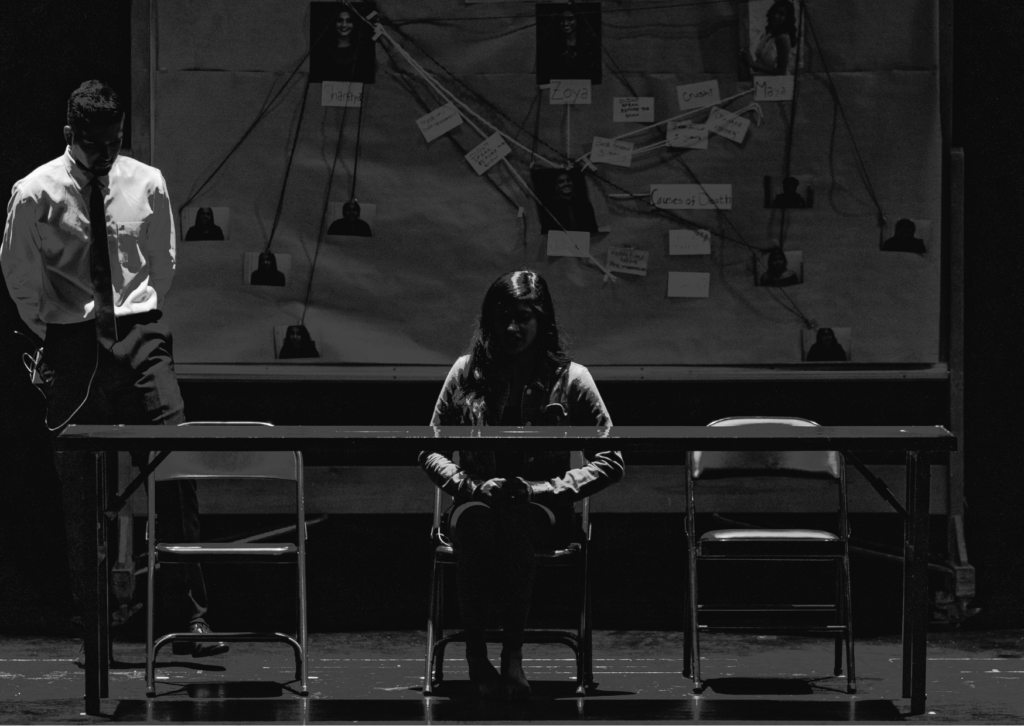Cruelty by Wife
Cruelty by Wife – Introduction
Marriage is based on mutual trust, companionship, and shared experiences. When these elements are absent for an extended period, the bond becomes a mere legal formality with no substance. Prolonged separation, coupled with inability to reconcile, is a relevant factor in deciding matrimonial disputes. Forcing a marriage to continue when it has become a source of unhappiness and conflict undermines the institution’s purpose. The purpose of write up is to know and study the basic concept of cruelty by wife.
This results in sustained emotional pain and lack of trust in the marital partnership which leads to cruelty.
Where cruelty has been defined in Indian Laws and Statutes
Section 498A of IPC
Husband or relative of husband of a woman subjecting her to cruelty –
‘Whoever, being the husband or the relative of the husband of a woman, subjects such woman to cruelty shall be punished with imprisonment for a term which may extend to three years and shall also be liable to fine.
Explanation. — For the purposes of this section, “cruelty” means—
(a) any wilful conduct which is of such a nature as is likely to drive the woman to commit suicide or to cause grave injury or danger to life, limb or health (whether mental or physical) of the woman; or
(b) harassment of the woman where such harassment is with a view to coercing her or any person related to her to meet any unlawful demand for any property or valuable security or is on account of failure by her or any person related to her to meet such demand. ‘
Section 13(1)(i-a) of the Hindu Marriage Act, 1955
As per Section 13(1)(i-a) of the Hindu Marriage Act, 1955, one of the ground for divorce after solemnisation of marriage is Cruelty by the spouses.
This section is applicable on both husband and wife and there is as such no biased . This section is inclusive of any kind of cruelty be it physical , mental, emotional etc.
Types of Cruelty
In the case of Sheldon v. Sheldon, Lord Denning stated: “The categories of cruelty are not exhaustive. Each case may differ. We deal with the behavior of people who are not generally comparable. There is no limit to the kind of behavior that can be considered cruel among humans. New forms of cruelty may emerge in any circumstance, based on human behavior, capacity, or inability to endure the action complained of. “This is the wonderful realm of cruelty.”
A decade later, the well-known English case of Russel v. Russel sought to define cruelty as follows: “Cruelty was defined as conduct that endangers life or health, either physically or psychologically, and gives rise to reasonable apprehension of such danger. The concept encompasses both physical and emotional cruelty, but it also highlights the common nineteenth-century idea that an act constitutes cruelty unless it causes apprehension or actual hurt to the petitioner.”
Broadly, cruelty can be mental , physical emotional and financial.
Is Cruelty limited to physical pain ?
Cruelty also includes activities that inflict mental agony and suffering that generates a reasonable anticipation of harm or injury to an aggrieved spouse from the behaviour of the other spouse, making it impossible for them to continue together.
In the case of Samar Ghosh v. Jaya Ghosh, the Supreme Court provided a series of illustrations of mental abuse. The list, however, is not complete. “A unilateral decision to refuse intercourse for an extended period of time without physical infirmity or a justifiable reason may constitute mental cruelty. A unilateral decision by either husband or wife after marriage not to have children may constitute mental cruelty. Frequent harshness of language, petulance, and apathy, as well as continuous abusive and humiliating conduct intended to torture or make the spouse’s life unpleasant, may constitute mental cruelty.”
Societal Prejudice related to cruelty
For millennia, Indian women have faced abuse in various forms at all stages of their lives. They experienced emotional and physical pain during their marriages, but they were supposed to stay devoted and obedient to their husbands. With the introduction of a rights-based constitution, steps were made to improve this woman’s low position. Many laws have been created to protect women and their rights, providing them the freedom and authority to speak out against abuse. Cruelty in marriage was not recognized as a valid reason for divorce until 1976, when it was incorporated in an amendment to the Hindu Marriage Act of 1955.
As, women are in a developing phase and considering the patriarchal nature of society , people make bias that cruelty can be done by male only but this notion is so wrong considering the current scenario, there are ‘n’ number of examples where the cruelty has been initiated by the women only but still they have an escape gate to run away.
Misuse of Section 498 A of IPC
Section 498A of the Indian Penal Code (IPC) criminalizes cruelty to a married woman by her spouse or family. The identical clause is currently addressed by Sections 85 and 86 of the Bhartiya Nyaya Sanhita (BNS), 2023.
Section 498-A of the IPC is a criminal legislation that allows the wife and her parents to charge any or all of the husband’s family members with physical or mental mistreatment. Typically, charged relatives include women of various ages, including unmarried and married sisters, the spouse’s mother, sisters-in-law, grandmothers, and aunts. Other maternal and paternal family members, as well as young children, live in the household.
There has been a rising trend to abuse regulations like Section 498A of the IPC as a vehicle for unleashing a personal vendetta against the husband and his family by a woman. Making broad and generalized claims during matrimonial problems, if not scrutinized, will lead to the misuse of legal processes and encourage the employment of arm-twisting tactics by a wife and/or her relatives.
False Complaints has been filed by Women against their spouses , and though it was found that women are on guilt yet the battle for alimony keep going and the saddest part is Victim himself many a time compensate to the accused only on the name of alimony. It has been seen that Divorce laws are quite biased when it comes to man and it favours woman a lot.
There is no security against fraudulent cases against men, and those who file them are unpunished. As a result, the law can be used to penalize men, with little legal options available to them.
We know of AtulSubhash’s case where he killed himself because of the cruelty faced by him because of his wife . After this Incident a rage has been seen on the social sites but sadly anyone noticed a similar incidents happened in Bihar and Jodhpur but hardly anyone even noticed that as None made the video here like Atul did and it’s tragic . The problem is our shift should be on removing the genus of the crime or the root cause not just one of the species of the kind.
How law and society is biased on the grounds of Abuse-
Alimony in foreign countries is for a set period of time, whereas child support is for the rest of one’s life. In India, women seek not only monthly payments but also lifetime alimony, even when the woman earns more than the male.
Because of the issue of alimony many lives has been suffered one of them is the AtulSubhash only , sometimes the pockets do not allow a man to provide that much of money and the pressure of society and the fear of Law and order compel one to take the step that need not to be taken.
News and Media Report on Abuse by Women
- The Bombay High Court recently upheld a divorce order and a family court’s finding that initiating frivolous procedures against the husband constituted mental cruelty. The divorce was granted based on the husband’s appeal for cruelty done by his wife. “The social stigma and unwarranted harassment caused to the husband and his family members is another significant aspect of the sufferings, and the family court was correct when it held that a strong case for divorce on the ground of cruelty was made out,” the division bench formed by Justices Girish Kulkarni and Ad Sethna observed so in this case.
- The Delhi High Court granted divorce to a man for mental cruelty caused by his wife’s “non-adjusting attitude,” stating that beating a dead horse would do no benefit. A bench led by Justice Suresh Kumar Kait overturned a family court order denying divorce on the husband’s plea and allowed his appeal, arguing that “existing unjustifiable and reprehensible conduct” that affects the other spouse’s physical and mental health may result in mental cruelty.
Also stated that the absence of legal conflicts between the parties for the first 14 years of their marriage did not reflect a “smooth sailing relationship” but rather demonstrated the husband’s attempts to make their relationship work.
- In one of the cases, the husband’s divorce petition filed under Section 13 of the Act is granted, and the parties’ marriage, which was solemnized on April 13, 1989, is dissolved by the decree of divorce. The wife will be entitled to Rs 50 lakh in permanent alimony and a residential unit worth up to Rs 1 crore, the bench ruled. Although it was discovered throughout the inquiry that the wife filed a fraudulent lawsuit and put false injuries on her body.
Kanwal Kishore Girdhar v. SeemaGirdhar, 2024 One of the cases included a marriage disagreement between a husband and wife. The husband, who serves in the Indian Army, alleged that difficulties between the couples arose shortly after marriage, prompting the wife’s departure from the matrimonial house in May 1999. Despite her return in September 1999, the relationship remained rocky. The husband sued for divorce citing cruelty under Section 13(i)(ia) of the Hindu Marriage Act of 1955.
He alleged a number of instances, including his wife’s failure to contribute to household expenses, disparaging remarks about his qualifications, and physical assault on his mother. He also accused her of involving the police under false pretenses, embarrassing him in front of friends and family, and making baseless claims of adultery. Thus, the court overturned the prior ruling and awarded divorce to the husband on the basis of cruelty under Section 13(i)(ia) of the Hindu Marriage Act, 1955. The court determined that the husband had sufficiently demonstrated the cruelty perpetrated by the wife, and that prolonging the relationship would only cause greater.
Tripti Singh v. AjatShatru, 2024 In this instance, the couple’s marriage, which began in 2002, has been fraught with turmoil, resulting in the wife filing for divorce in 2006 after leaving her husband, whom she accuses of cruelty. The husband claims that his wife abandoned him on December 2, 2006, and has made no attempts to reconcile. The husband has accused his wife of cruelty because she filed a fake criminal complaint against him and his family under Sections 498A, 323, 504, and 506 of the Penal Code, 1860, as well as Section 3 read with Section 4 of the Dowry Prohibition Act, 1961, alleging dowry demands.
The Court ruled that the husband was subjected to the most harsh treatment, and that he court reasonably have felt unsafe cohabiting with the wife. The wife’s actions resulted in a loss of reputation and social standing for the husband and his family. After suffering that, the husband cannot be expected to cope and restore his matrimonial connections. Thus, the Court determined that the husband’s alleged act of cruelty was substantiated. To that extent, the Court stated that the Family Court’s order requires no interference.
Geddam Jhansi v. The State of Telangana &ANR , here Premlata wife of Doctor has filed a false dowry case against him , also accused him of mental and physical torture and later it was found that she falsely alleged her husband and in laws.
Conclusion
Cruelty by Wife is a much emerging topic these days , numerous incidents has been seen where false cases has been filed by women and the irony is though it has been established they do file a false case yet no actions has been taken on them.
Incase, You wish to discuss, and talk on any such matter that, ‘You may need help with’. Feel free to contact us. Our team at www.legalwellbeing.in shall be happy to assist.
Written by Team Member(s) and Ms. Varsha Dubey.
References-
1.) ‘Frivolous Prosecutions By Wife Cruelty’, Swati Deshpande, The Times of India , Jan 11, 2025.
2.)’Mental Cruelty”: Court Grants Divorce To Man From “Non-Adjusting” Wife , NDTV, Jan, 23, 2024
3.) Consistent behaviour patterns that cause great emotional, mental pain to spouse ground for divorce: SC, The Hindu , December 30 , 2024 .
4.) ‘Wife guilty of cruelty, SC asks hubby to give Rs 1 cr flat’, PressTrustofIndia , April 24, 2017.
5.) For divorces in India, the process is the punishment, Priyanjali Narayan, Indiatoday, Dec 13, 2024



